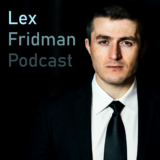.lightweight-accordion { border: 1px solid #ccc; border-radius: 4px; margin: 10px 0; } .icon-container { display: flex; ...
.lightweight-accordion { border: 1px solid #ccc; border-radius: 4px; margin: 10px 0; } .icon-container { display: flex; ...
.lightweight-accordion { border: 1px solid #ccc; border-radius: 4px; margin: 10px 0; } .icon-container { display: flex; ...
.lightweight-accordion { border: 1px solid #ccc; border-radius: 4px; margin: 10px 0; } .icon-container { display: flex; ...
.lightweight-accordion { border: 1px solid #ccc; border-radius: 4px; margin: 10px 0; } .icon-container { display: flex; ...
.lightweight-accordion { border: 1px solid #ccc; border-radius: 4px; margin: 10px 0; } .icon-container { display: flex; ...
.lightweight-accordion { border: 1px solid #ccc; border-radius: 4px; margin: 10px 0; } .icon-container { display: flex; ...
.lightweight-accordion { border: 1px solid #ccc; border-radius: 4px; margin: 10px 0; } .icon-container { display: flex; ...
.lightweight-accordion { border: 1px solid #ccc; border-radius: 4px; margin: 10px 0; } .icon-container { display: flex; ...
.lightweight-accordion { border: 1px solid #ccc; border-radius: 4px; margin: 10px 0; } .icon-container { display: flex; ...
.lightweight-accordion { border: 1px solid #ccc; border-radius: 4px; margin: 10px 0; } .icon-container { display: flex; ...
Narendra Modi is the Prime Minister of India. On YouTube this episode is available in English, Hindi, Russian (and soon other languages). Captions and ...


